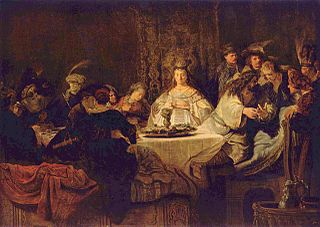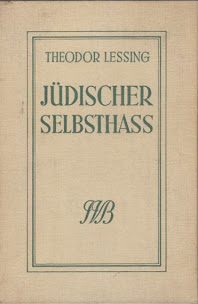 W
WAn Empire of Their Own: How the Jews Invented Hollywood is a 1988 non-fiction book whose topic is the careers of several prominent Jewish film producers in the early years of Hollywood. Author Neal Gabler focuses on the psychological motivations of these film moguls, arguing that their background as Jewish immigrants shaped their careers and influenced the movies they made.
 W
WJewish identity is the objective or subjective state of perceiving oneself as a Jew and as relating to being Jewish. Under a broader definition, Jewish identity does not depend on whether a person is regarded as a Jew by others, or by an external set of religious, or legal, or sociological norms. Jewish identity does not need to imply religious orthodoxy. Accordingly, Jewish identity can be cultural in nature. Jewish identity can involve ties to the Jewish community. Orthodox Judaism bases Jewishness on matrilineal descent. According to Jewish law (halacha), all those born of a Jewish mother are considered Jewish, regardless of personal beliefs or level of observance of Jewish law.
 W
WInterfaith marriage in Judaism was historically looked upon with very strong disfavor by Jewish leaders, and it remains a controversial issue among them today. In the Talmud and all of resulting Jewish law until the advent of new Jewish movements following the Jewish Enlightenment, the "Haskala", marriage between a Jew and a gentile is both prohibited, and also void under Jewish law.
 W
WThe Jewish left consists of Jews who identify with, or support, left-wing or liberal causes, consciously as Jews, either as individuals or through organizations. There is no one organization or movement which constitutes the Jewish left, however. Jews have been major forces in the history of the labor movement, the settlement house movement, the women's rights movement, anti-racist and anti-colonialist work, and anti-fascist and anti-capitalist organizations of many forms in Europe, the United States, Algeria, Iraq, Ethiopia, and modern-day Israel. Jews have a rich history of involvement in anarchism, socialism, Marxism, and Western liberalism. Although the expression "on the left" covers a range of politics, many well-known figures "on the left" have been of Jews who were born into Jewish families and have various degrees of connection to Jewish communities, Jewish culture, Jewish tradition, or the Jewish religion in its many variants.
 W
WStereotypes of Jews are generalized representations of Jews, often caricatured and of a prejudiced and antisemitic nature. Those stereotypes include: Jews always acting with unforgiving hostility towards Christians, Jews' religious rituals which have specifically undermined the Christian Church and state, and Jews' habitual assassinations of Christians as their most extreme deeds.
 W
WSelf-hating Jew or self-loathing Jew, both associated with auto-antisemitism, is a term which is used to describe Jewish individuals who hold antisemitic views. The concept gained widespread currency after Theodor Lessing's 1930 book Der jüdische Selbsthaß, which sought to explain a perceived inclination among Jewish intellectuals, toward inciting antisemitism, by stating their views about Judaism. The term is said to have become "something of a key term of opprobrium in and beyond Cold War-era debates about Zionism".
 W
WStars of David: Prominent Jews Talk About Being Jewish (2005) is a book by journalist and former 60 Minutes producer Abigail Pogrebin. The 400-page book was published by Random House.